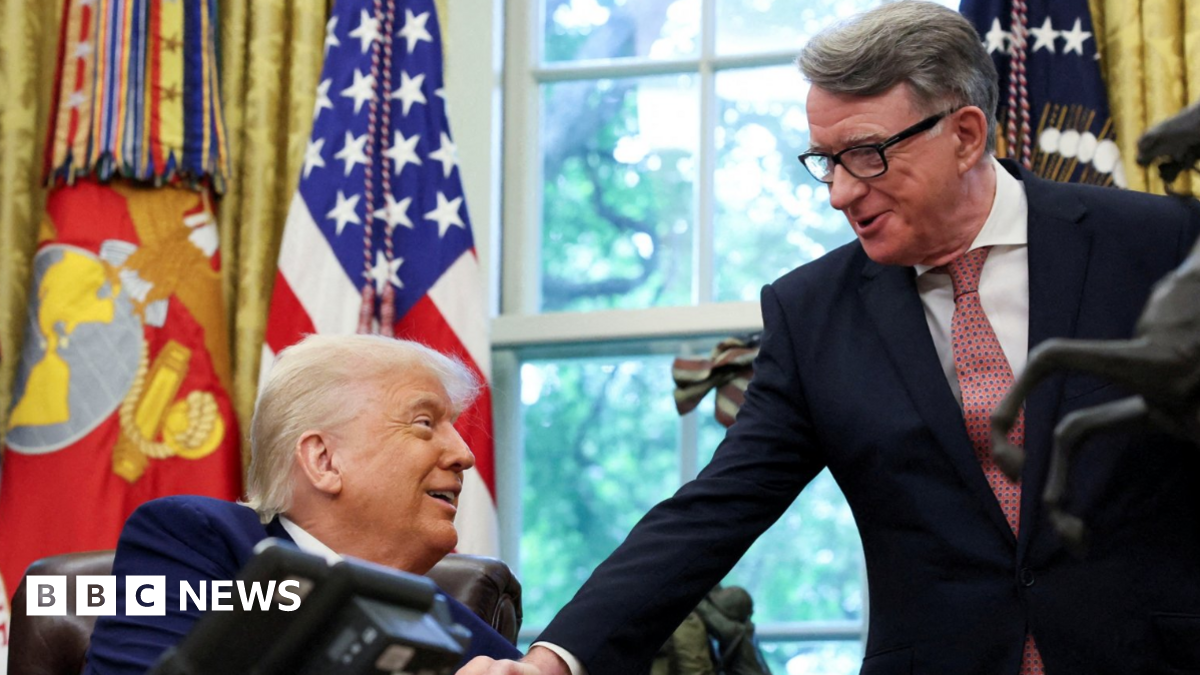Lord Mandelson replaced career diplomat Dame Karen Pierce in Washington DC in December 2024, when Prime Minister Sir Keir Starmer decided he was the best candidate to build links with the newly-elected Trump administration.
Concern around Lord Mandelson’s friendship with Epstein were raised at the time, but his ability to deal with President Trump, as well as his ability as a networker and seasoned political operator, was seen as a valuable asset.
That changed when emails were published showing Lord Mandelson sent supportive messages to Epstein as he faced charges for sex offences in 2008, which the government insisted was new information about the “depth” of the pair’s relationship.
Sir Keir fired him in September, a day after having told MPs the Labour peer retained his “full confidence” at PMQs.
Ambassadors are managed by the Foreign Office and the civil service, and bosses of both were answering questions from MPs on the Foreign Affairs Committee.
Foreign Office head, Sir Oliver Robbins, was asked whether Lord Mandelson went through the normal process for appointing an ambassador and told MPs: “No, it was different because this was not run as a standard civil service process.”
Labour MP Fleur Anderson asked whether Lord Mandelson’s interview specifically included the opportunity to share “anything that could bring the government into disrepute”.
Sir Chris said: “There was no interview for Mr Mandelson, it was done as a direct appointment by ministers, as Sir Oliver has described, and therefore there was no panel interview.
“That was the normal practice for direct ministerial appointments.”
Changes have been made since Lord Mandelson’s sacking, Sir Chris added, “so that we effectively replicate what would normally happen in a panel interview… where there is a minuted conversation with the candidate”.
Sir Oliver said Lord Mandelson did complete a conflict of interest form, but when pressed on whether that included “friendships”, he said: “No, it’s not a sort of reputational conflict that’s being targeted by that form, it’s about reality of perception of economic or financial conflicts.”

